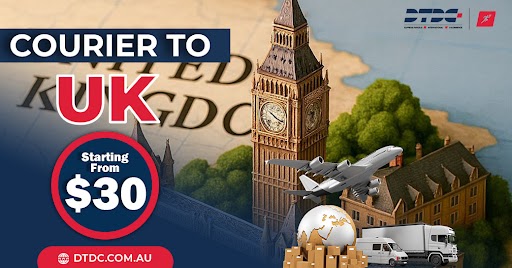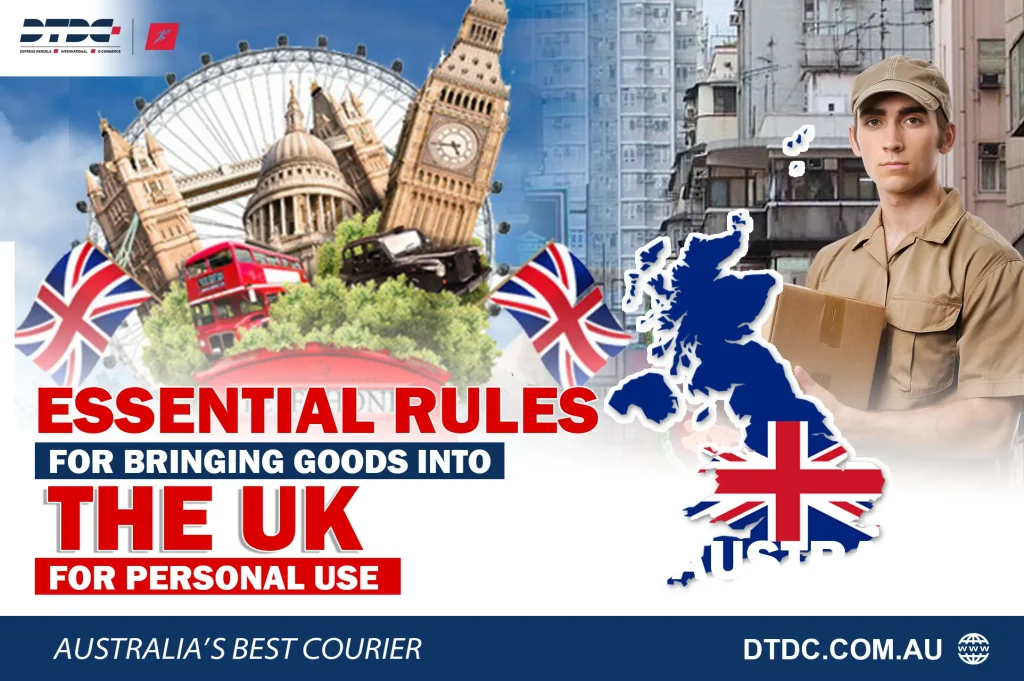Meet Ben: An Australian Expat Caught Off-Guard by UK Customs Duty
Imagine stepping off the plane in London, exhausted but excited, only to be handed a bill bigger than your airfare.
That’s exactly what happened to Ben when he moved back from Sydney, with his PS5 and all.
He didn’t break the law. He didn’t lie. He was just bringing goods into the UK for personal use.
His £1,000 mistake is painfully common, but completely avoidable.
In the next few minutes, you’ll find out how to pack your stuff, claim your duty relief, and skip the costly surprises at customs.
Ready? Let’s save you some money.
The Common Mistake People Make When Moving Personal Belongings to the UK
The story of Ben is not unique, as many people assume that bringing goods into the UK for personal use doesn’t require any customs duty. According to the UK customs duty regulations, passengers failing to properly declare items or apply for the Transfer of Residence (ToR) scheme may incur high charges.
Do I Have To Pay Import Duty on Personal Items?
The short answer: it depends. The UK has a clear set of rules when it comes to declaring and paying UK import duty rates on personal belongings. And yes, many items do attract UK customs duty on personal items unless you qualify for exemptions.
Personal allowances are provided for personal belongings when moving to the UK from Australia, and the limit varies according to the product. You can bring in goods with you of value up to £390 without paying any duty.
Items that are for your personal needs, that you purchased and used from abroad, are classified as personal belongings by the UK customs. According to HMRC (His Majesty’s Revenue and Customs), personal belongings include:
- Clothing
- Laptop
- Electronics
- Furniture
- Kitchenware
- Books
- Vehicles
These items must be for personal use and not intended for resale. Moreover, they must have been owned and used for at least six months in Australia before the move to the UK.
What Items Need To Be Declared at Customs for Clearance in the UK?
Used items that go over the personal allowance limit should be declared at the UK customs. Failure to declare can lead to penalties, delays, or even confiscation. You can declare the goods online from five days before you arrive in the UK. You can also manually declare the items to the border police on arrival in the UK.
Do I Have To Declare Clothes at Customs UK?
Passengers with the ToR approval don’t have to declare used clothes at customs. The Transfer of Residence UK scheme allows passengers to bring all of their used clothes. You just have to prove that you have been using these goods for 6 months.
In case you don’t have the ToR approval, then you can bring used clothes without paying duty under personal allowances. But once it goes over the personal allowance of £390, then you have to declare the clothes to the customs and pay customs duty.
If you are bringing brand new clothes, then that does not come under UK customs personal belongings. In this case, you will have to declare your goods and pay duty.
How Is Customs Duty From Australia to the UK Calculated?
The UK customs duty rates from Australia to the UK use the CIF (Cost + Insurance + Freight) value to determine import duty. This includes:
- The used item’s value
- The cost of shipping
- Insurance (if any)
If the total value of your personal belongings is below £630, then the UK customs charges a flat 2.5% duty on all items. When the value goes over £630, then the UK import duty rates are calculated depending on the product type. You can find the simplified duty rates for commonly used items in the table below.
| Used item | Simplified Customs Duty |
| Antiques and works of art | 0% |
| Jewellery | 2% |
| Television | 14% |
| Fabrics (including embroidery, textiles, tapestry, and knitted) | 8% |
| Clothing | 12% |
| Footwear | 16% |
| Furniture | 0% |
| Computers, tablets, and mobile phones | 0% |
| Books or publications | 0% |
| Tableware and kitchenware | 8% |
| All others | 2% |
The Role of Item Value and Age in Determining Duty
Ben’s mistake? He didn’t factor in the declared value of his brand-new PS5, which was under 12 months old. The customs officer explained that newer items attract higher scrutiny, especially with UK customs duty on personal items. Since he hadn’t applied for any exemption in advance, the entire shipment was taxed.
The Transfer of Residence (ToR) Relief Scheme and UK Customs Personal Allowances
If you are someone like Ben, moving personal belongings to the UK, then you can avail of customs duty relief through the Transfer of Residence UK scheme. This duty relief can be availed if you:
- are shifting your normal place of residence to the UK
- are an international student coming for a full-time course
- are transferring to get married or to enter in a civil partnership
- are moving after getting married or entering a civil partnership
Some personal items are not included in this scheme:
- Alcoholic beverages
- Tobacco and tobacco products
- Commercial transport means
- Non-portable instruments
A passenger applying for the ToR scheme has to meet certain criteria. Only then will the customs duty allowance be provided. The passenger should:
- be a resident outside the UK for 12 consecutive months
- import the goods within 12 months of shifting to the UK
- intend to use the goods for the same purpose as it was used before.
For a detailed breakdown, you can refer to the official UK customs website, which outlines what qualifies for exemptions under the ToR scheme and what does not.
A Step-by-Step Guide to Applying for ToR Before Moving to the UK
- Visit the HMRC ToR portal
- Register and complete the ToR1 application form
- Submit the form along with documents:
- Proof of UK residence
- Passport
- Inventory list of personal items
- Proof of use (bills, receipts, or photos)
- Wait for approval (can take 2–4 weeks)
- Receive a reference number for customs clearance
Ideally, the ToR application should be done before your items arrive in the UK. It would be best to apply for the scheme while you are still in Australia. This way, you can tackle any issues that can occur with your application before sending the goods.
Avoiding Trouble at the Border: Shipping vs Baggage
Bringing goods into the UK for personal use can be done as baggage, shipping them separately, or both. If you have fewer items or items of lower value, you can try to include all of them in the baggage. Customs duty will be applicable after the prescribed limits.
If you have higher value items, then you can opt for shipping them separately, which allows a higher limit for customs duty exemption with the Transfer of Residence UK scheme. Most passengers make use of combining these methods to include all their personal belongings and also reduce the customs duty at the same time.
Our expert team can help you manage your goods properly. Click here to get a personalized quote.
Importing Furniture to the UK for Personal Use
Used furniture for personal use can be brought into the UK under the ToR scheme. But if the furniture is brand-new, then it will not qualify for ToR. Customs import duty and VAT need to be paid for this furniture.
Regardless of whether the furniture is used or brand-new, you should provide the necessary documents, such as:
- Certificate of Origin
- Bill of lading
- Packing list
- Commercial invoice
Watch Out: UK Customs Prohibited and Restricted Items
This is a common trap where people like Ben usually lose money and goods. Before bringing goods into the UK for personal use, you should be aware of the prohibited items. Other wise you will be subjected to penalties, confiscation, and even punishments.
Personal imports of meat and dairy products from most non-EU countries are prohibited. Other prohibited items include:
- Controlled drugs
- Offensive weapons, for example, flick knives
- Self-defence sprays such as pepper spray
- Endangered animals and plants
- Rough diamonds
- Indecent and obscene materials
Many other items face restrictions and require special permissions. You can learn more about such goods here.
Electronics & Jewellery: What UK Customs Sees As High-Risk
The brand new PS5 of Ben was one item that got him the most trouble. Personal goods like electronics & jewelry are sometimes considered high-risk items because of the possibility of counterfeiting. Additionally, a larger quantity of these items can also alert customs as they can be intended for commercial purposes rather than personal use.
It is always better to stay within the limit set by the ToR scheme, especially for high-value UK customs personal belongings. As the value of goods is computed based on their age and condition, it is always advised to keep the proof of purchase and cost, especially for electronic goods.
How Many Pouches of Tobacco Are Allowed As Personal Belongings?
Tobacco is an excluded item under the ToR scheme, which means that you need to pay duties and taxes for bringing in tobacco for your personal use. Even after paying the duties, there are certain limits for bringing in tobacco and tobacco products.
The limits are different for each tobacco product, and they are:
- 200 cigarettes
- 100 cigarillos
- 50 cigars
- 250g of tobacco
- 200 sticks for electronic tobacco devices
You can also split your allowance; for instance, you can bring 100 cigarettes and 125g of tobacco. Going over the limit will definitely get your goods confiscated and even lead to penalties.
Bringing Goods Into the UK for Personal Use After Brexit
Brexit hasn’t brought any significant changes to bringing goods into the UK from Australia. The changes are only to the EU countries. The UK import duty rates, VAT, and regulations remain the same as before Brexit.
Pro Tips To Save Time & Money When Moving to the UK From Australia
H3: How To Estimate and Reduce Customs Duty on Personal Items?
- Use the UK customs website to get accurate rates and specifics about your goods.
- Bundle the used items under the ToR scheme.
- Ensure that your goods are used goods and classified as personal belongings under the UK customs guidelines.
- Avoid shipping luxury or high-value items.
- Make sure to collect and provide all the necessary documents.
- Choose a reputable shipping partner that has expertise in customs clearance.
Why Choosing the Right Shipping Partner Matters (a Lot)
As we have seen from the case of Ben, there are many challenges with bringing personal items into the UK. Many of these issues lead to money loss and time delays. Thus, it is highly recommended to partner with a shipping partner with experience in customs clearance.
A reputable shipping partner can help you in:
- navigating the ToR process.
- estimating the accurate duty by properly classifying your goods.
- preparing all the necessary paperwork.
- minimizing the customs delays.
- saving customs duty if the limits are exceeded through legal means.
- real-time tracking and updates about your goods.
If Ben had chosen to partner with DTDC Australia, then he wouldn’t have gotten a £1000 surprise from the UK customs.
How We Can Help With Shipping Household Goods to the UK Trouble-Free
At DTDC Australia, we have been helping expats from Australia in bringing goods into the UK for personal use for many years. Throughout these years, our team has become equipped to face all the challenges to provide a trouble-free experience to the customers at the best prices. Our team will help you with ToR paperwork, customs clearance, and ensure timely delivery.
Planning your move to the UK? Talk to us for a personalised quote designed as per the type and size of your personal goods.














